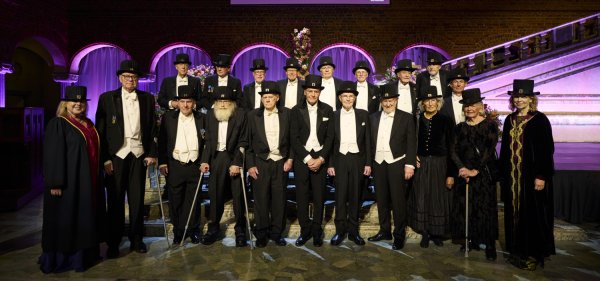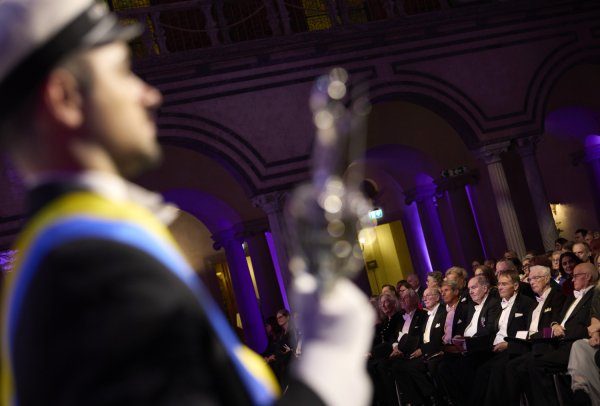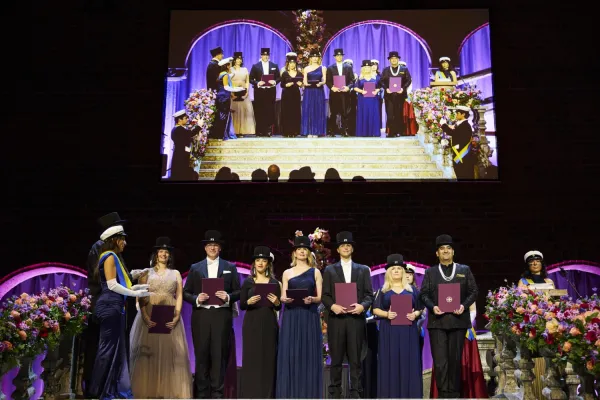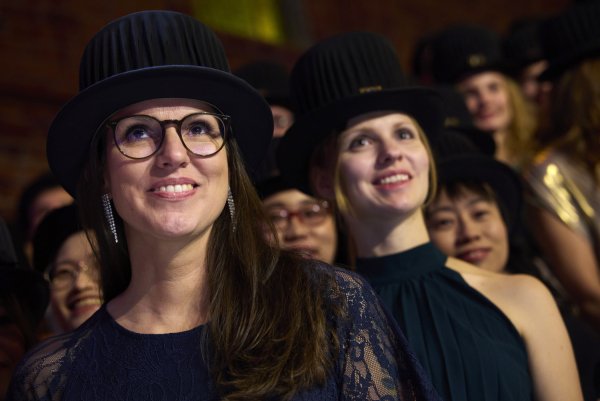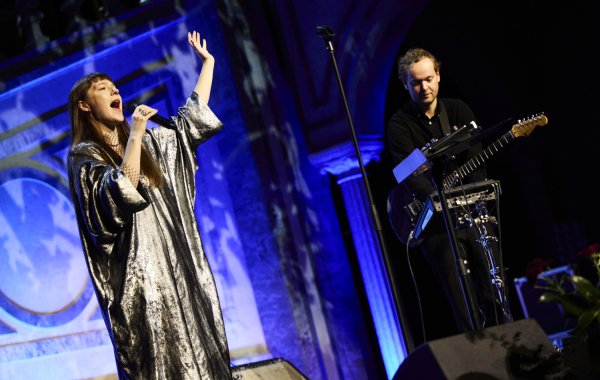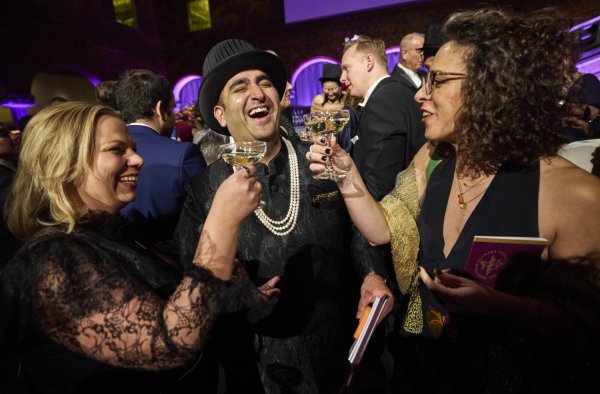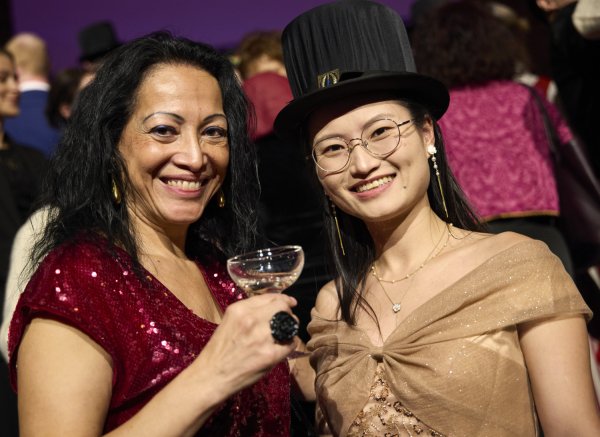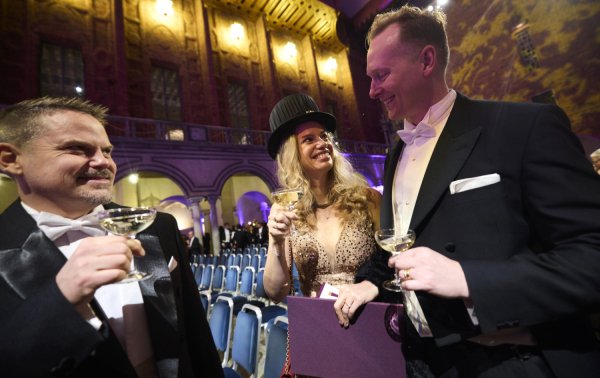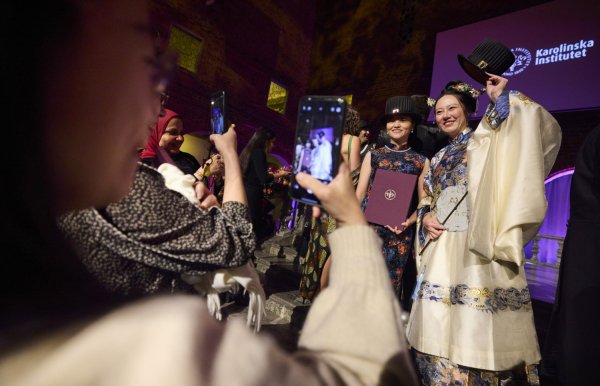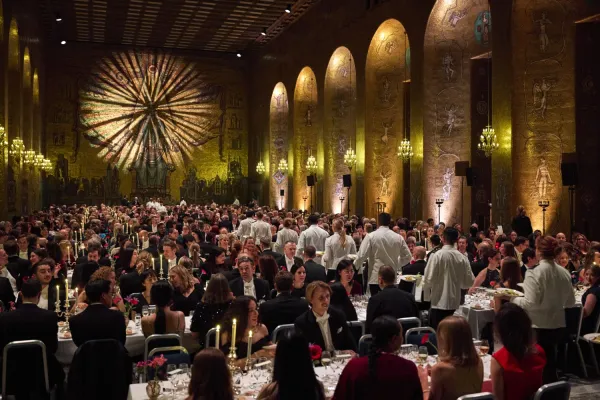Friendship and equal opportunities are guests of honour at this autumn’s doctoral conferment ceremony
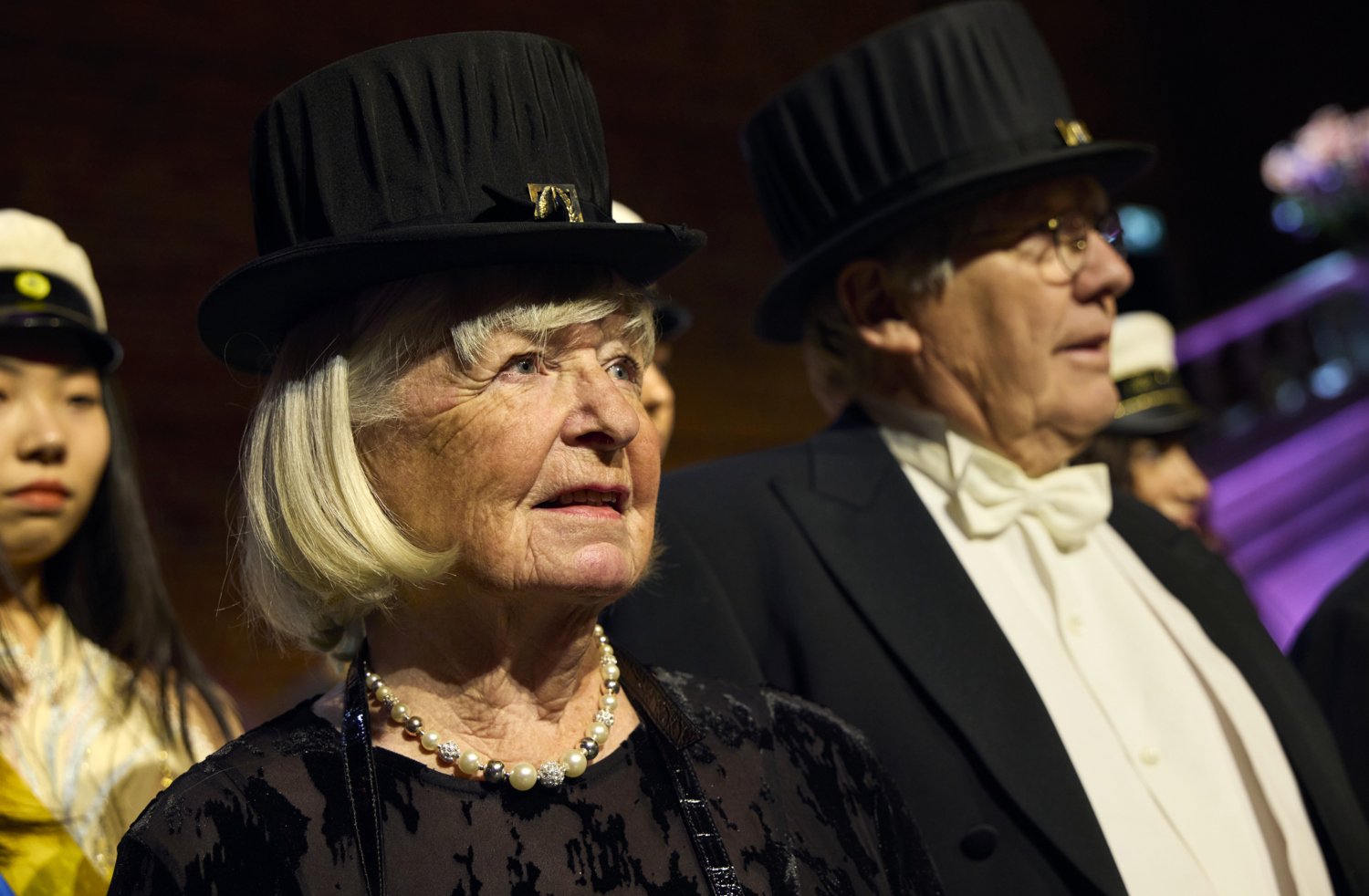
Last Friday, KI celebrated one of the highpoints of the year as it awarded degrees to 19 jubilee doctors and 147 new doctoral graduates. The evening of 14 November in the Stockholm City Hall turned into a moving tribute to research advances from different perspectives – one such being gender equality: 50 years ago, barely 3 per cent of the new doctors were women; this evening it was 58 per cent.
The Stockholm City Hall tower stood like an illuminated exclamation mark in the November darkness as the guests arrived for the conferment ceremony for KI’s 147 new doctors and 19 jubilee doctors. Glimpsed under the heavy coats and cloaks, the sequins, orders and tailcoats presaged a special evening ahead in the Blue Hall.
Perhaps the bright exclamation mark was a symbol of the academic ceremony, which with its festiveness and formality celebrates history and experience on the one hand, and opportunity and future on the other. Doctor of Medicine Zhengpei Zhang undoubtedly spoke for many others when describing the feeling in the magnificent hall:
“Right now, it’s like the world is at my feet and anything’s possible. I feel so proud and so happy to be here, where it’s all so beautiful and well-organised. It’s an experience I’ll never forget after all my years of hard work.”
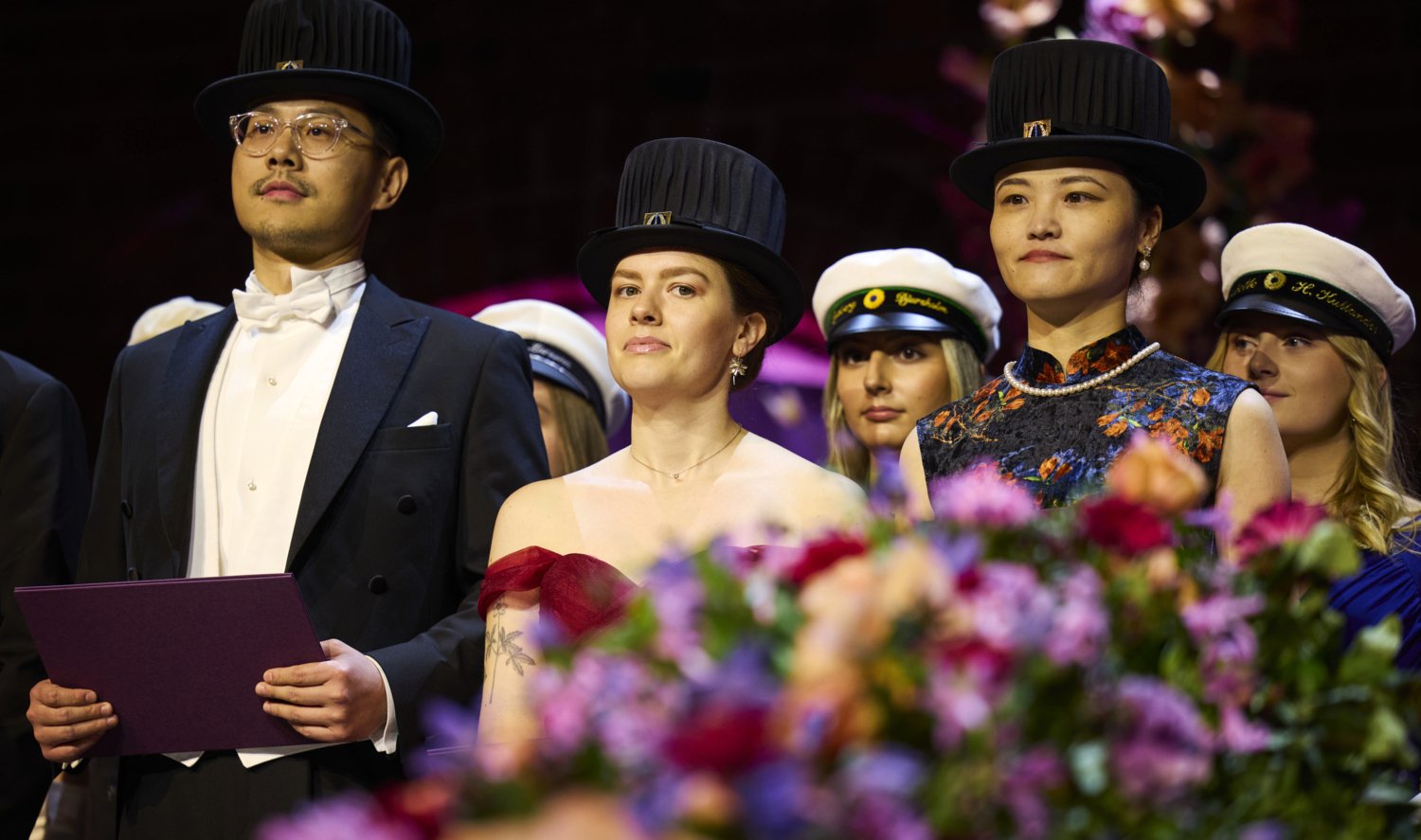
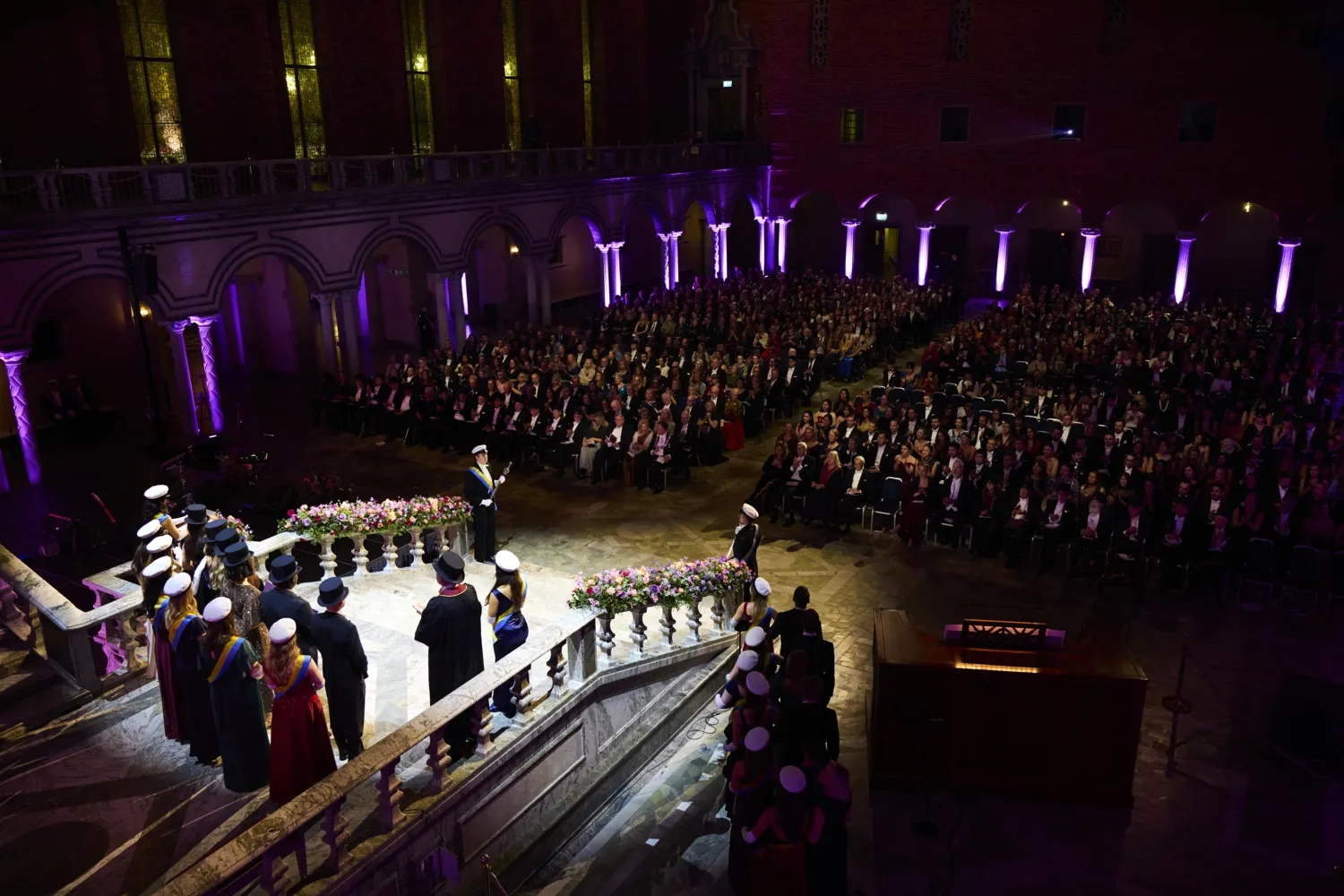
Advances in research into numerous serious health challenges are also worthy of an exclamation mark. The 147 young researchers who followed behind the opening bannered procession to receive their doctoral insignia have contributed new and important knowledge on cancer, type 1 diabetes, arthrosis, Alzheimer’s disease and spinal injury, to name just a few of their respective research fields.
Advances in gender equality
This particular evening, advances made in gender equality and equal opportunities deserved a particularly resplendent exclamation mark over Stockholm and the world. 50 years ago, only two of the 76 new doctors at the conferment ceremony were women. Over the years from then to now, November 2025, that meagre 3 per cent has shot up to 58 per cent, with women making up 85 of the 147 new graduates.
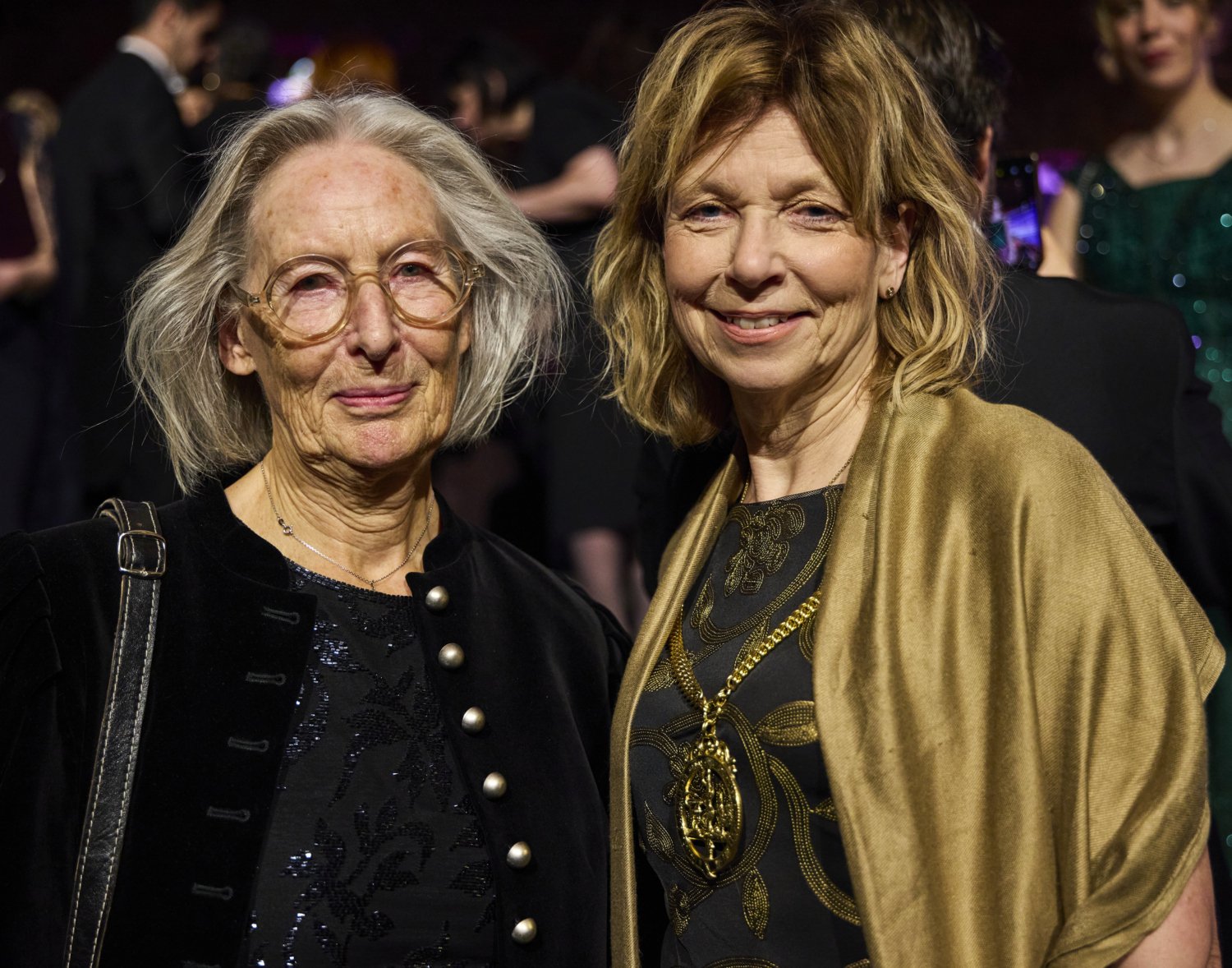
“It’s a bit strange to be here, because it doesn’t feel that long ago that I was sitting in the first row among the new doctors,” says new jubilee doctor Carin Larsson Backström, who arrived in the company of her husband Pontus Backström. “Back then, there were two of us women, and I think about that tonight when women are in a clear majority. I know at first hand that nothing’s come free to them, but I hope and believe that they’ve had it easier than we did.”
Although daily advances are made in the research world, many big hurdles still need to be overcome, not least those erected by certain global political currents and rulings.
Challenges to academic freedom
In her speeches, KI president Annika Östman Wernerson and academic vice president of Research Marie Arsenian Henriksson, who was also the conferrer for the jubilee doctors, addressed the importance of academic freedom to both democracy and the future of independent research.
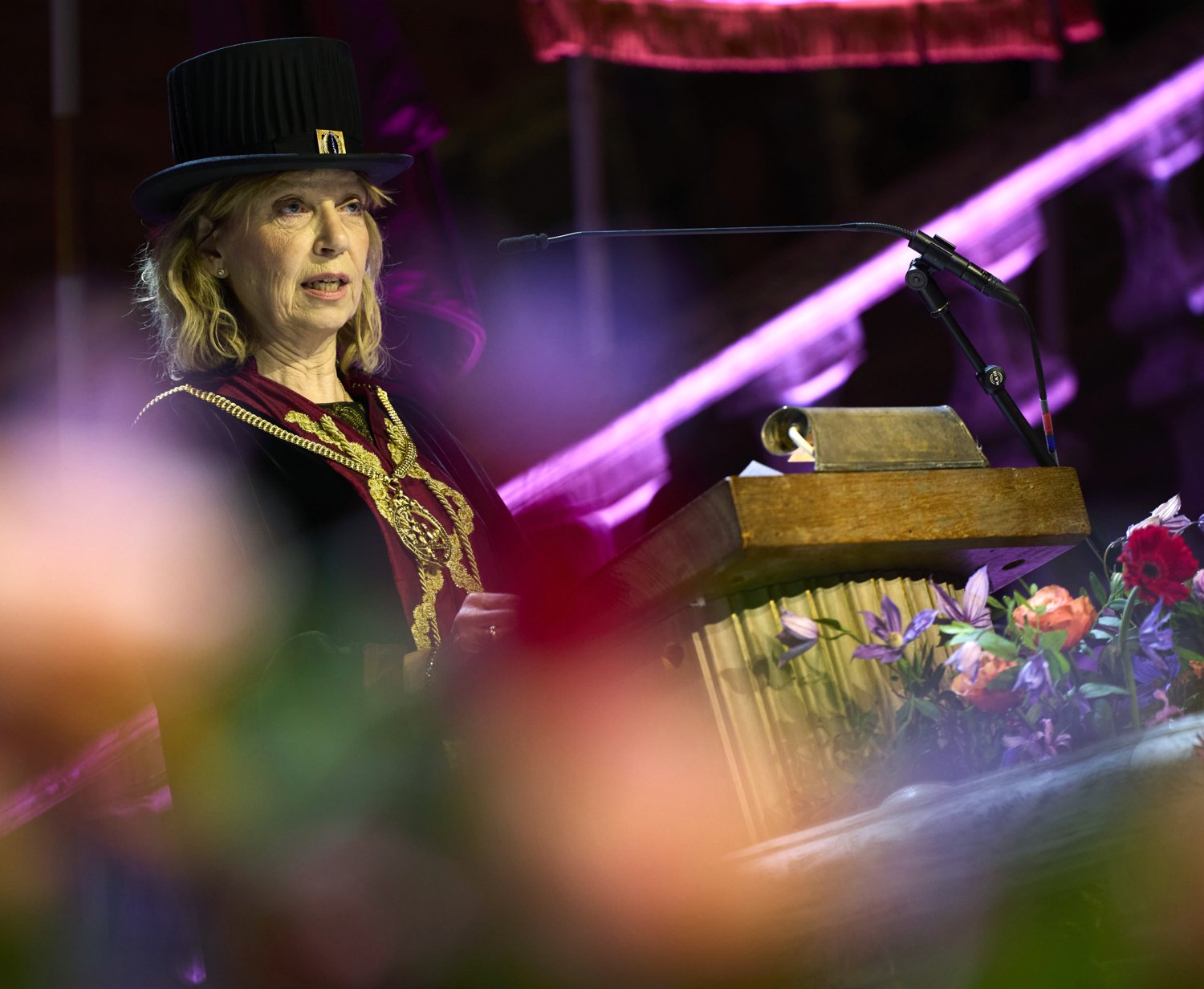
“What exactly is academic freedom,” asked Professor Östman Wernerson. “I think Carl von Linné put it perfectly back in 1737. When German botanists objected to his classification system for living organisms, he replied: ‘We are created human beings in order to dissent, so that through this dissension, truth will finally appear! We [botanists] live in a free republic. It is granted to everyone to decide what he wants to say, what he thinks. Time only will judge us.’ I often think of these words in my daily life. It is, after all, easy to get frustrated by different opinions, especially in Sweden, the land of consensus.”
Celebrate valuable friendship
Nevertheless, new challenges had to take a back seat this evening, when there was so much to celebrate, not least the years of work and challenges behind all approved theses. In his speech to the graduands, academic vice president of Doctoral Education and conferrer Robert Harris, added an extra cause for celebration: friendship.
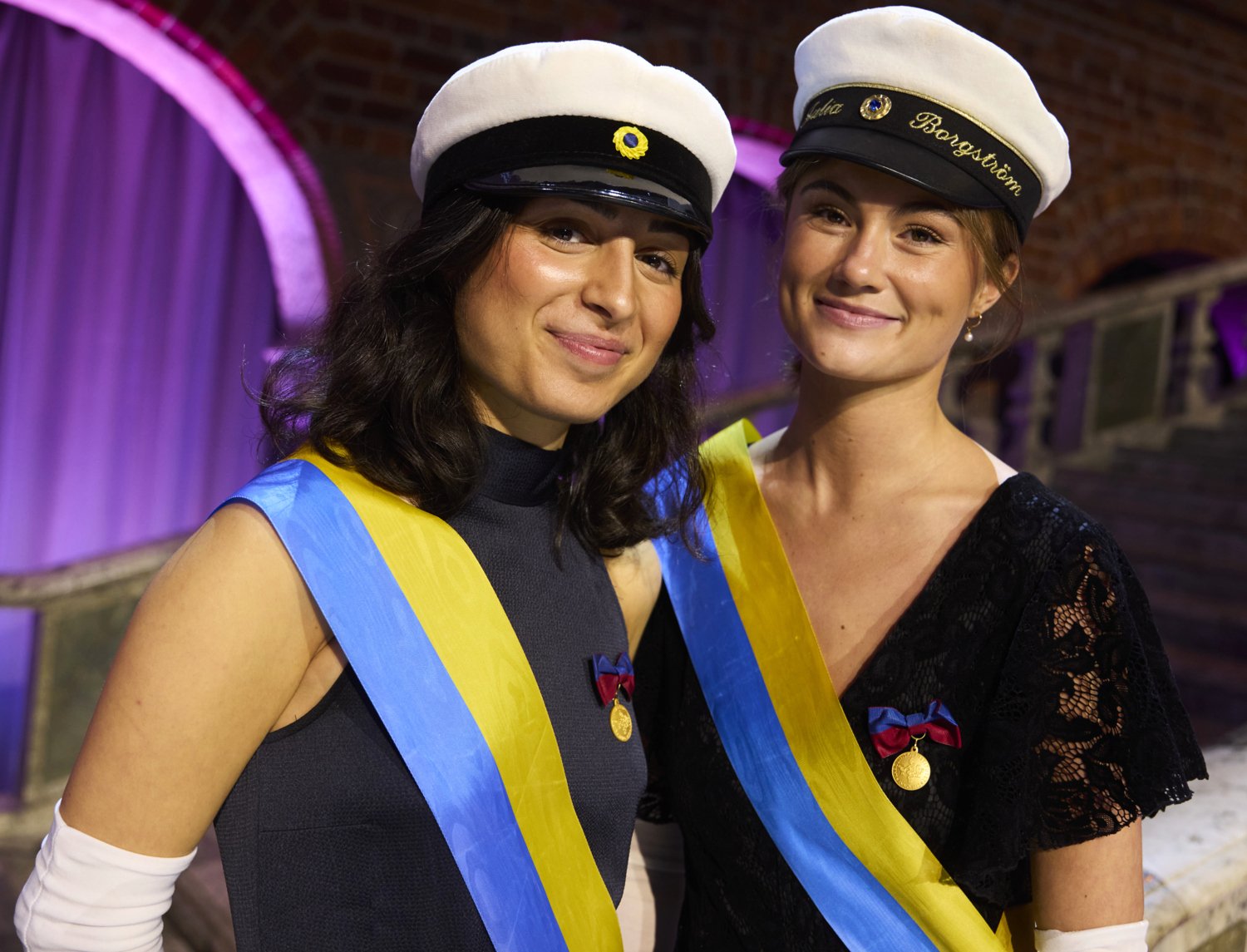
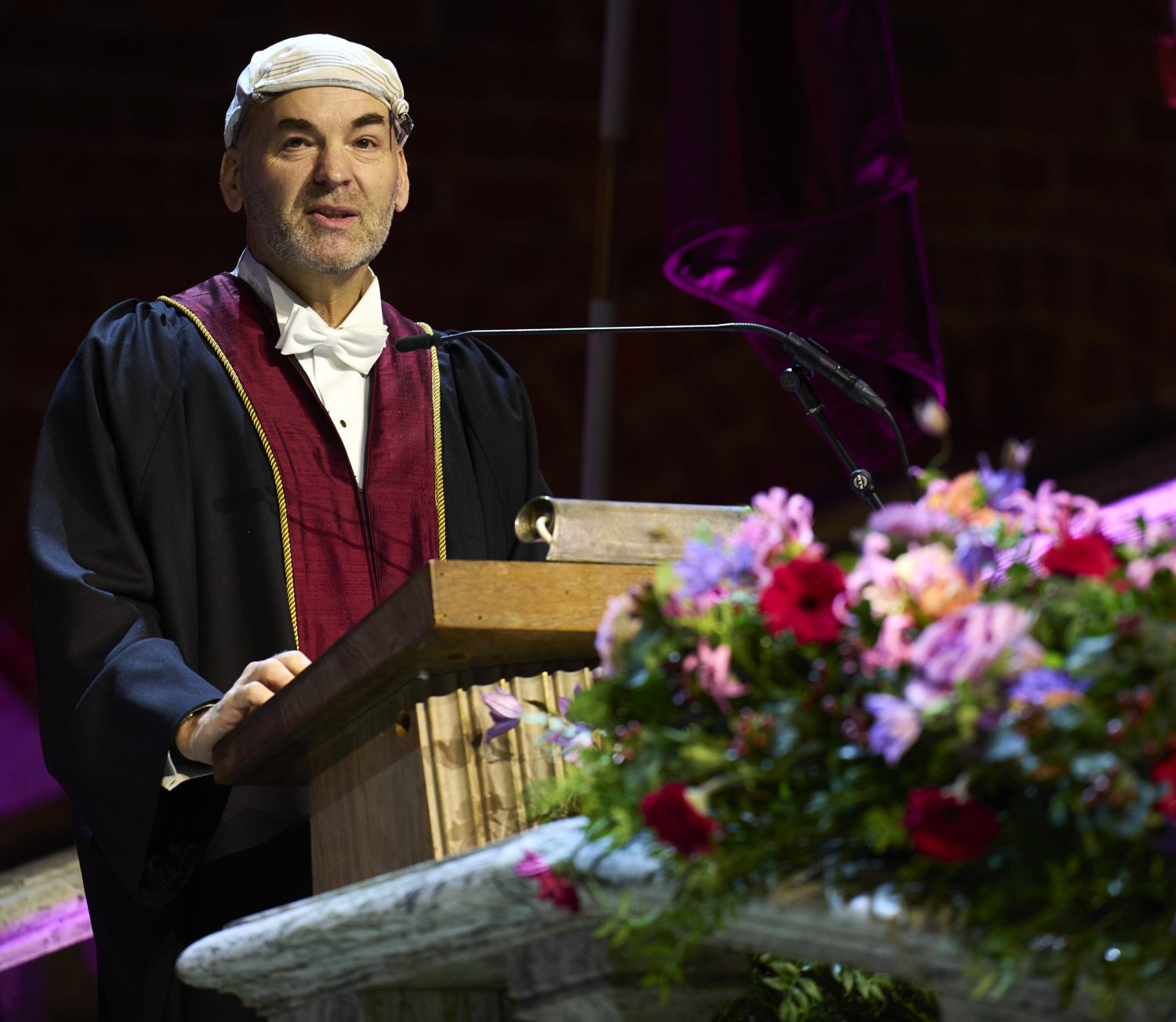
“I hope that you understand how important you’ve been, not just to science but also to each other through the bonds of friendship that you’ve forged through the sharing of your ups and downs in the lab or when exploring of exciting cities together during conferences. You’ve learnt from each other, learnt about each other and helped shape each other. The best publications come and go, but the impact of friendships can last a lifetime.”
After Professor Harris’s address, the graduands were escorted by student ushers onto the stage in groups of seven to receive their hats and diplomas.
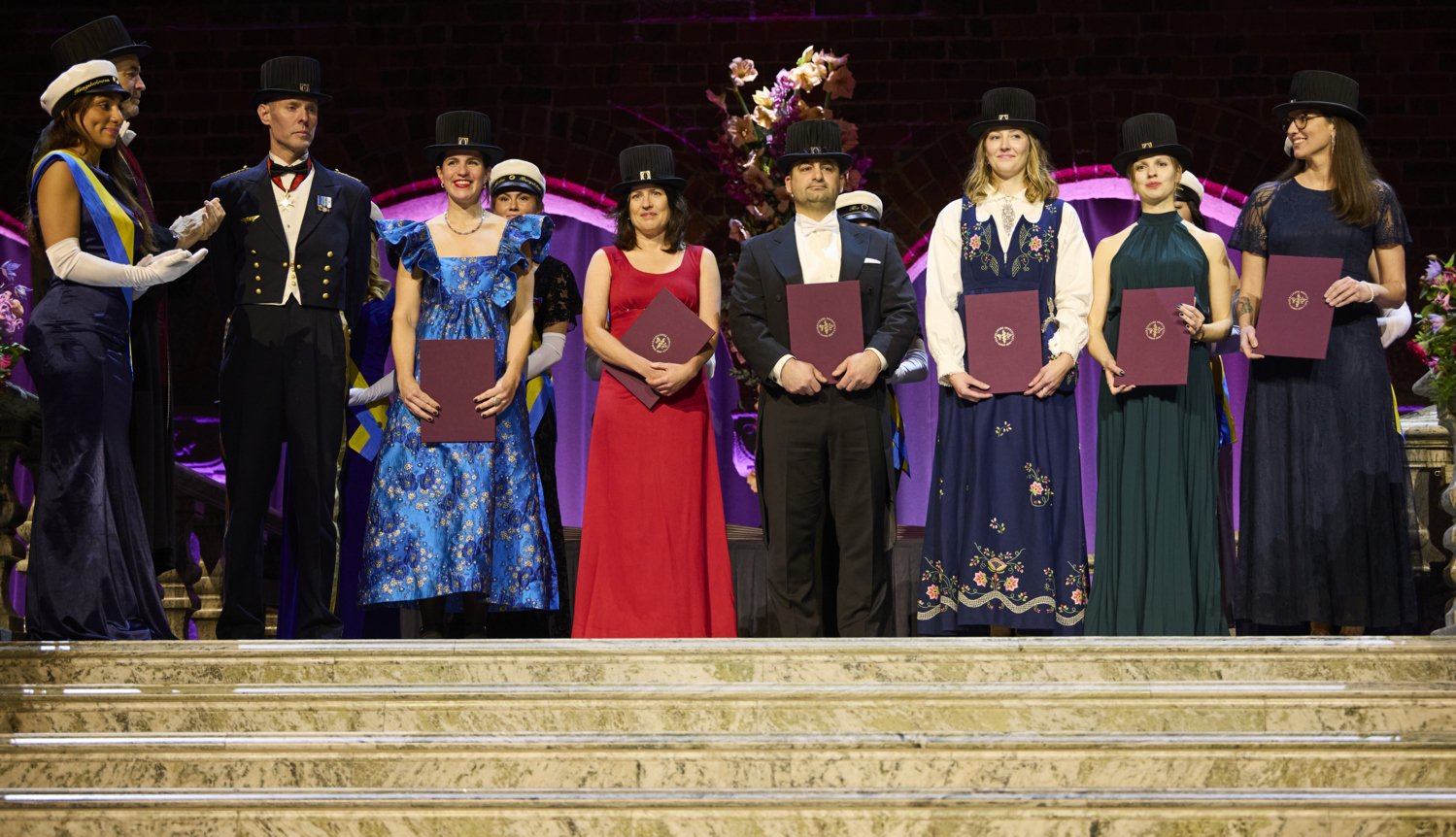
Each group was given a canon salute by the Gothenburg Artillery Division out on the waterfront, and on the screen above the stage, the guests could watch the gunpowder smoke disperse over the black autumnal waters of lake Mälaren.
Let the party continue
Once tribute had been paid to the new doctors, they all received a standing ovation by the university management and guests, the applause continuing even after the rumble of the last cannon salute had faded. Families, friends and supervisors then finally had a chance to embrace the evening’s guests of honour before it was time to raise a glass to the future and to a magical evening.
At the banquet in the Golden Hall that now awaited, everyone showed that they had heeded the words of Robert Harris, who closed his speech with the exhortation: Let the party begin!
Text: Anne Hammarskjöld
Translation: Neil Betteridge

